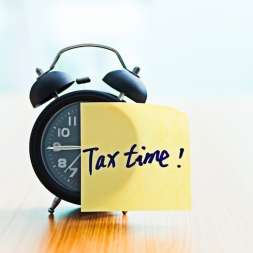4 Tax Writeoffs for Physician Assistants
Ugh, I am still procrastinating from filing my taxes this year. The worst part about my lack of initiative when it comes to the task is that I have a CPA. So, filing taxes really only means gathering several documents that have been accumulating dust in my desk over the past 12 months and making a handful of calculations. Yet, somehow the job still seems insurmountable. There is a silver lining, however when it comes to filing taxes as a healthcare provider. Physician assistants, for example may be able to write off several career related expenses reducing overall tax liability.
How do you know what’s legit and what’s not when you write off expenses related to your work as a physician assistant? When it comes to business-related expenses, the IRS points to the “ordinary and necessary” rule. If the expense is considered common and accepted in the physician assistant profession, you’re in the clear. The expense needn’t be 100% necessary to practice as a PA, but rather one that would generally be considered “appropriate”. Chartering a helicopter to drop you off directly on your hospital’s helipad every morning instead of braving your highway commute, for example, would not be considered “ordinary” or “appropriate”.
An additional consideration as you look at writing off expenses associated with your physician assistant career is the party that funded the expense. Should your employer purchased deductible items on your behalf, you can’t write them off on your taxes. Qualifying expenses must have come from your own bottom-line. So, what ordinary and appropriate expenses can physician assistants deduct?
1. Licensure and Certification Fees
Provided that your employer does not reimburse for licensure and certification expenses, physician assistants may deduct these items. A few conditions must be met to receive this write off. Unreimbursed work-related expenses are considered “miscellaneous 2 percent expenses”. To deduct these items, their sum must exceed 2 percent of your adjusted gross income. If, for example, your adjusted gross income is $100,000, your unreimbursed work-related expenses must total more than $2,000 to claim the deduction.
2. Continuing Medical Education Course Costs
Registration and enrollment fees associated with attending CME courses may also be written off, provided that these expenses are not reimbursed by your employer. These costs, like the others in this list, fall under the umbrella of the “miscellaneous 2 percent rule”.
3. Continuing Medical Education Travel and Lodging
If you’re jet setting for your next physician assistant continuing education conference, you’re in luck! PAs may deduct travel and lodging as well as 50% of the cost of meals for work-related travel. The rule here is that travel related expenses must be legitimately incurred on professional development. A one-day CME course in Cancun followed by a six-day scuba diving excursion doesn’t count. Keep the “ordinary and necessary” rule in mind.
Having trouble finding the time to get out of town? If your continuing education event is local, you may still deduct the cost of travel to and from your CME conference. The IRS allows a write off of 56 cents per mile.
4. Miscellaneous Practice Expenses
Additional expenses incurred by physician assistants may also qualify as tax deductions. PAs taking call, for example, may be able to deduct the cost of owning a cell phone. Medical supplies such as a stethoscope or otoscope purchase may be deducted as well. Use caution with writing off miscellaneous expenses. Deducting too many personal items, like home internet for example, may raise a red flag with the IRS. It’s advisable to talk with a CPA when it comes to miscellaneous write offs.
Don’t forget to save your receipts to legitimize work-related deductions should they be called into question!
You Might Also Like: The Lowdown on Hourly Pay for Physician Assistants

